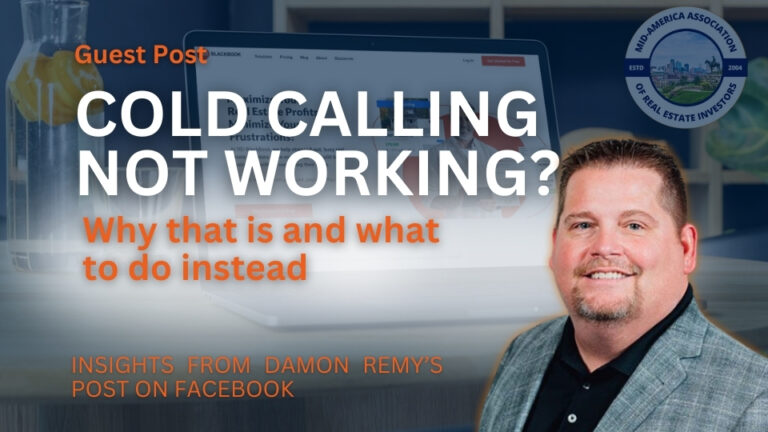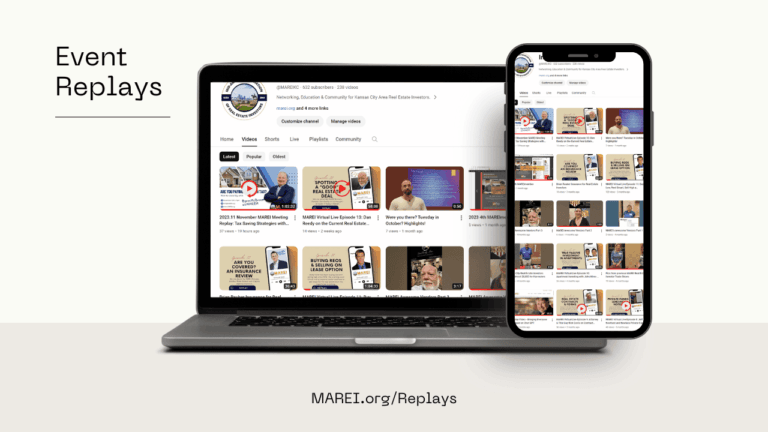
Cold Calling is Dying – Here’s What Smart Investors Are Doing Instead
For years, cold calling, mass texting, and other outbound tactics were the bread and butter of real estate lead generation. But in 2025, the game has changed—and clinging to the old ways could actually cost you – learn more.

You’re Making Money… So Why Are You Still Broke?
You close deals. You make money. But somehow, there’s never anything left over. Why? Because you’re running your business the way most investors were taught—and it’s killing your profit. There is a better way!

Crunching the Numbers: Smart Deal Analysis for Real Estate Investors
Think you know what a deal looks like?
Vena Jones-Cox shows how a “12% ROI” deal fell apart with one quick calculation—and why bad numbers can cost you thousands.
👉 Learn how to crunch the right numbers before you make your next offer.

Missouri Passes HB 595: Protecting Private Property Rights and Sound Business Practices from KCMOs Source of Income Ordinance
On May 7th, 2025, the Missouri Legislature passed House Bill 595, a key piece of legislation that restores the rights of private housing providers across the state — including in Kansas City — to decide whether or not to participate in voluntary housing assistance programs like Section 8. See what this means!

MAREI Meeting & Events Replay Page
Have You Checked out our Member’s Only Training Vault Congrats, Members!This is your exclusive library of over 40+ recorded meetings featuring expert strategies, proven systems, and real estate success stories from local and national investors. Want to learn about:✔️ Short sales, subject-to deals, land trusts✔️ Private money, mobile homes, extended stays✔️ Tax-saving strategies, partnerships, creative exits? It’s all here—ready for you to Learn • Connect • Do at your own pace. To access, log into MAREIMember.com and then go to the Replay Page. Not a Member Yet? 👉 This vault is just one of the many benefits you unlock with a MAREI membership. If you’re serious about learning how to invest and want to connect with people doing real deals… Join now for just $25/month or $149/year🔓 Become a member here and get full access today! See More Member Benefits 2025 Meetings April 08: Get Mentored Night, No RecordingMarch 11th

Guest Blog Post: Troy Kearns hosts Joe Blackshere
Joe Blackshere guest on Troy Kearns podcast to share his story from corporate to entrepreneur and they share a lot of Realtor Tips along the way – watch now.


